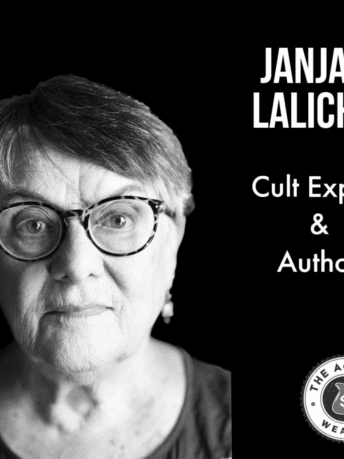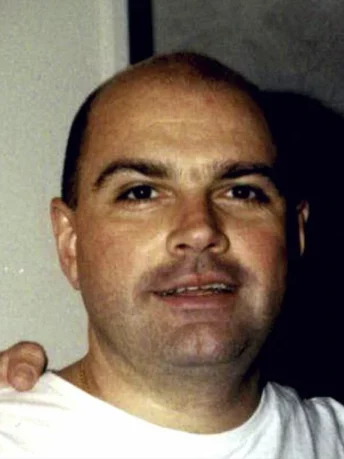I was recruited into a cult in 1975 when I was thirty years old. The previous year I returned to the United States after having spent almost four years in exile abroad, where I lived the most serene life on an island in the Mediterranean off the coast of Spain. If someone had told me that within a year I would be deeply involved and committed to a cult, I would have laughed derisively. Not me! I was too independent, too headstrong, a lover of fun and freedom.
But there I was, new to the San Francisco Bay Area and before long cleverly recruited into a group that preached Marxism and feminism and a passion for the working class. I was told that we would be unlike all other groups on the Left because we were led by women and because our leader was brilliant and from the working class. I was told that we would not follow the political line of any other country, but that we would create our own brand of Marxism, our own proletarian feminist revolution; we would not be rigid, dogmatic, sexist, or racist. We were new and different—an elite force. We were going to make the world a better place for all people.
The reality, of course, was that our practical work had little if anything to do with working-class ideals or goals. Our leader was an incorrigible, uncontrollable megalomaniac; she was alcoholic, arbitrary, and almost always angry. Our organization, with the word democratic prominent in its name, was ultra-authoritarian, completely top down, with no real input or criticism sought or listened to. Our lives were made up of eighteen-hour days of busywork and denunciation sessions. Our world was harsh, barren, and unrewarding. We were committed and idealistic dreamers who were tricked into believing that such demanding conditions were necessary to transform ourselves into cadre fighters. We were instructed that we were the “uninstructed” and that we must take all guidance from our leader who knew all. We were never to question any orders or in any way contradict or confront our leader. We were taught to dread and fear the outside world which, we were told, would shun and punish us. In fact, the shunning and punishment was rampant within; but, blinded by our own belief, commitment, and fatigue, in conjunction with the group’s behavior-control techniques, I and the others succumbed to the pressures and quickly learned to rationalize away any doubts or apprehensions.
I remained in that group for more than ten years.
When I got out of the cult in early 1986, I had to begin life anew. I was a decade behind in everything. Both my parents had died, and I had lost touch with former friends. I had to play catch up, so to speak, culturally, socially, economically, emotionally, and intellectually. But most important of all, I had to repair my soul. Who am I? How could I have committed the many unkind acts while in the group? Where do I belong now? What do I believe in now? Will I ever restore my faith in myself and in others? These are the kinds of questions and dilemmas that troubled me. Over time, and most recently through my contact and work with former members of many types of cults, I’ve come to see that the single most uniform aspect of all cult experiences is that it touches, and usually damages, the soul, the psyche.
I define a cult as a particular kind of relationship; it can be a group situation or between two people. Within that relationship there is an enormous power imbalance, but more than that, there is a hidden agenda. There is deception, manipulation, exploitation, and almost certainly abuse, carried out and/or reinforced by the use of social and psychological influence techniques meant to control behavior and shape attitudes and thinking patterns. A cult is led by a person (or sometimes two or three) who demands all veneration, who makes all decisions, and who ultimately controls most aspects of the personal lives of those who are cleverly persuaded that they must follow, obey, and stay in the good graces (i.e., the grips) of the leader.
Cult leaders and cult recruiters capture the hearts, minds, and souls of the best and brightest in our society. Cults are looking for active, productive, intelligent, energetic individuals who will perform for the cult by fund-raising, by recruiting more followers, by operating cult businesses and leading cult seminars. In the 1960s and 1970s it was perhaps more typical for cults to recruit primarily young people; this is no longer so. Today, cults recruit the young and old alike and everyone in between. With anywhere from three to five thousand cults active in the United States today, it is quite likely that a cult recruiter has been knocking on your door or that you have unwittingly answered a cult’s advertisement for a course, a workshop, a lecture, a book or tape, or some other product.
Today’s cults are so sophisticated in their recruitment and indoctrination techniques that their methods go far beyond what anybody imagined in the 1950s when certain scholars and researchers were studying and writing about thought-reform programs and systematic behavior-control processes. Cults today have perfected their approaches and refined their manipulations. They had to—after all, recruiting and retaining bright people isn’t easy. And this is again where the soul comes in.
Cults appeal to that part of us that wants something better. A better world for others or a better self—these are the genuine, heartfelt desires of decent, honest human beings. Cult recruiters are trained in how to play on those desires, how to make it look as though what the cult has to offer is exactly what you’re interested in. Cults can be formed around almost any topic; there are nine broad categories of cults: religious, Eastern-based, New Age, business, political, psychotherapy/human potential, occult, one-on-one, and miscellaneous (such as lifestyle or personality cults).
All cults, no matter their stripe, are a variation on a theme, for their common denominator is the use of coercive persuasion and behavior control without the knowledge of the person who is being manipulated. They manage this by targeting (and eventually attacking, dissembling, and reformulating according to the cult’s desired image) a person’s innermost self. They take away you and give you back a cult personality, a pseudopersonality. They punish you when the old you turns up, and they reward the new you. Before you know it, you don’t know who you are or how you got there; you only know (or you are trained to believe) that you have to stay there. In a cult there is only one way—cults are totalitarian, a yellow brick road to serve the leader’s whims and desires, be they power, sex, or money.
When I was in my cult, I so desperately wanted to believe that I had finally found the answer. Life in our society today can be difficult, confusing, daunting, disheartening, alarming, and frightening. Someone with a glib tongue and good line can sometimes appear to offer you a solution. In my case, I was drawn in by the proposed political solution—to bring about social change. For someone else, the focus may be on health, diet, psychological awareness, the environment, the stars, a spirit being, or even becoming a more successful business person. The crux is that cult leaders are adept at convincing us that what they have to offer is special, real, unique, and forever—and that we wouldn’t be able to survive apart from the cult. A person’s sense of belief is so dear, so deep, and so powerful; ultimately it is that belief that helps bind the person to the cult. It is the glue used by the cult to make the mind manipulations stick. It is our very core, our very belief in our self and our commitment, it is our very faith in humankind and the world that is exploited and abused and turned against us by the cults.
φφφ
When a person finally breaks from a cultic relationship, it is the soul, then, that is most in need of repair. When you discover one day that your guru is a fraud, that the “miracles” are no more than magic tricks, that the group’s victories and accomplishments are fabrications of an internal public-relations system, that your holy teacher is breaking his avowed celibacy with every young disciple, that the group’s connections to people of import are nonexistent … when awarenesses such as these come upon you, you are faced with what many have called a “spiritual rape.” Whether your cultic experience was religious or secular, the realization of such enormous loss and betrayal tends to cause considerable pain. As a result, afterwards, many people are prone to reject all forms of belief. In some cases, it may take years to overcome the disillusionment, and learn not only to have trust in your inner self but also to believe in something again.
There is also a related difficulty: that persistent nagging feeling that you have made a mistake in leaving the group—perhaps the teachings are true and the leader is right; perhaps it is you who failed. Because cults are so clever at manipulating certain emotions and events—in particular, wonder, awe, transcendence, and mystery (this is sometimes called “mystical manipulation”)—and because of the human desire to believe, a former cult member may grasp at some way to go on believing even after leaving the group. For this reason, many people today go from one cult to another, or go in and out of the same cultic group or relationship (known as “cult hopping”). Since every person needs something to believe in—a philosophy of life, a way of being, an organized religion, a political commitment, or a combination thereof—sorting out these matters of belief tends to be a major area of adjustment after a cultic experience.
Since a cult involvement is often an ill-fated attempt to live out some form of personal belief, the process of figuring out what to believe in once you’ve left the cult may be facilitated by dissecting the cult’s ideological system. Do an evaluation of the group’s philosophy, attitudes, and worldview; define it for yourself in your own language, not the language of the cult. Then see how this holds up against the cult’s actual daily practice or what you now know about the group. For some, it might be useful to go back and research the spiritual or philosophical system that you were raised in or believed in prior to the cult involvement. Through this process you will be better able to assess what is real and what is not, what is useful and what is not, what is distortion and what is not. By having a basis for comparison, you will be able to question and explore areas of knowledge or belief that were no doubt systematically closed to you while in the cult.
Most people who come out of a cultic experience shy away from organized religion or any kind of organized group for some time. I generally encourage people to take their time before choosing another religious affiliation or group involvement. As with any intimate relationship, trust is reciprocal and must be earned.
After a cult experience, when you wake up to face the deepest emptiness, the darkest hole, the sharpest scream of inner terror at the deception and betrayal you feel, I can only offer hope by saying that in confronting the loss, you will find the real you. And when your soul is healed, refreshed, and free of the nightmare bondage of cult lies and manipulations, the real you will find a new path, a valid path—a path to freedom and wholeness.
φφφφφ
Janja Lalich, Ph.D. is a researcher, educator and consultant specializing in cultism and extremist groups and ideologies. She is the author of Bounded Choice: True Believers and Charismatic Cults (University of California Press, 2004); coauthor of Take Back Your Life: Recovering from Cults and Abusive Relationships (Bay Tree, 2006); Cults in Our Midst: The Hidden Menace in Our Everyday Lives (Jossey-Bass, 1995); and “Crazy” Therapies: What Are They? Do They Work? (Jossey-Bass, 1996); and editor of Women Under the Influence: A Study of Women’s Lives in Totalist Groups (special volume of the Cultic Studies Journal, 14(1), 1997). Dr. Lalich is Professor of Sociology at California State University, Chico, and may be reached at drlalich@sbcglobal.net. Her current research focuses on the experiences of individuals who were born and raised in a cult, and in particular their adjustment to mainstream society once they leave the cult.






